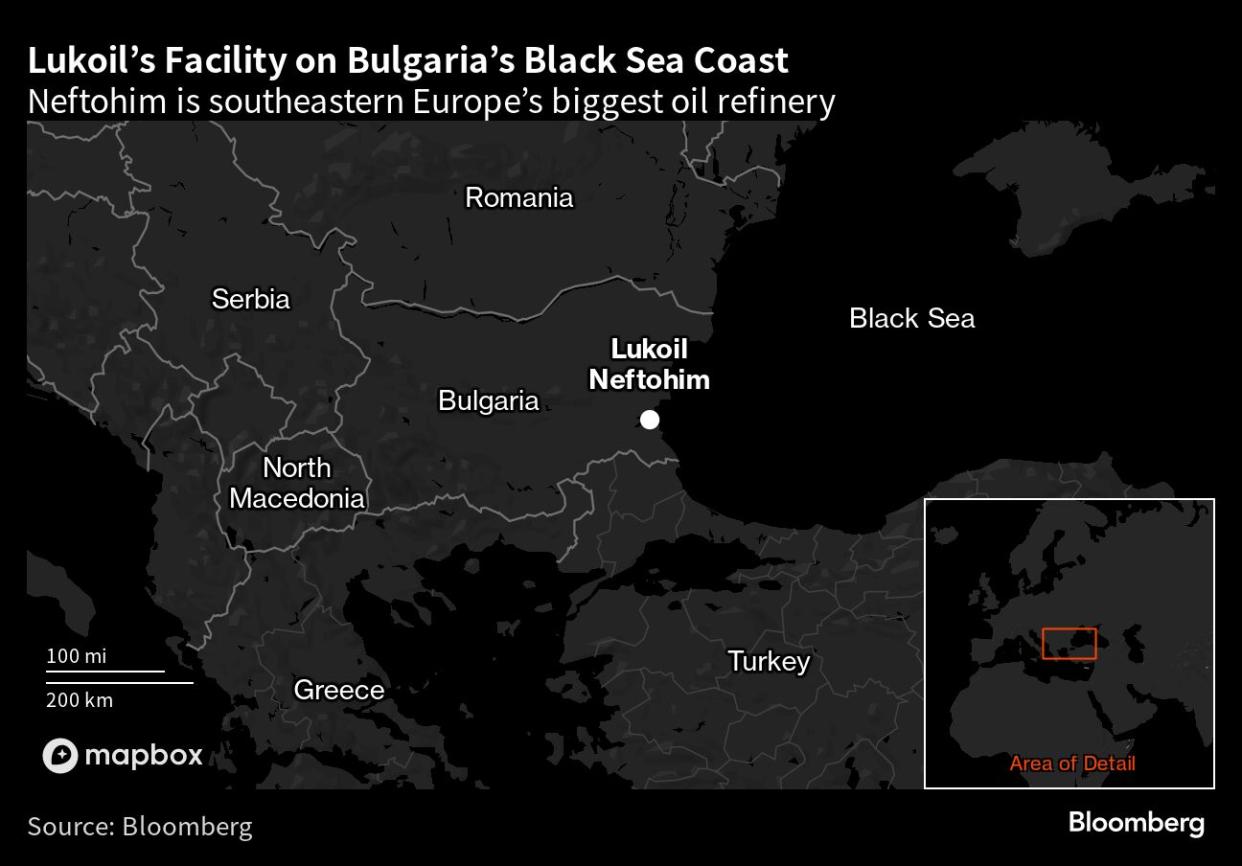Lukoil Decries Political Storm as Bulgaria Business Sale Weighed

(Bloomberg) -- Lukoil PJSC said it’s considering the sale of southeastern Europe’s biggest refinery and other assets in Bulgaria as the authorities seek to reduce the Balkan nation’s energy dependence on Russia.
Most Read from Bloomberg
Biden Says He Might Not Have Sought Reelection If Trump Weren’t Running
Treasury Frenzy Drives 10-Year Yield Below 4.2%: Markets Wrap
Truck-Stop Billionaire Fights Warren Buffett to Increase $18 Billion Fortune
India Stock Value Tops $4 Trillion, Narrowing Gap With Hong Kong
Putin Makes Rare Foreign Trip to Gulf With Oil, War in Focus
Bulgarian lawmakers earlier this year approved a motion to gradually curtail imports of Russian crude, bringing the country into line with other European Union members. The ruling coalition this month unveiled plans to end those imports in March, forcing Neftohim, Lukoil’s refinery on the Black Sea coast, to look for alternative fuel sources.
Russia’s second-largest oil company is now reviewing strategy due to the adoption of “discriminatory laws and other unfair, biased political decisions toward the refinery,” the producer said in a statement Tuesday. The “artificially fanned political storm” harms its business worldwide, it said.
The government in Sofia already put an end to Lukoil’s lease of the refinery port in July, and antitrust regulators fined the company’s Bulgarian branches earlier this year with a total of 263 million lev ($146 million) for abusing its dominant position.
Lukoil, which bought the former state-owned Neftohim in 1999 and has since invested more than $3.4 billion, is the main supplier for fuel retailers in Bulgaria, as well as the owner of an oil transit pipeline crossing most of the country. Bulgaria is exempt from European Union rules banning the imports of Russian oil as a sanction over Kremlin’s war in Ukraine. The exemption, initially valid until end-2024, was already cut by three months in September.
The new rules, which may be approved by the Bulgarian parliament as early as this week, envisage ending all imports from March and cutting the exports of some refinery products. If adopted, the legal amendments — which Bulgaria says are a way to end the potential bypass of EU sanctions — may force the refinery to shut down and puts fuel supplies at risk, Lukoil said last month.
Lukoil said Tuesday that it will work with international consultants to review strategy for its Bulgarian assets, analyzing various options including the sale of the business. That includes 220 gas stations and nine oil depots, as well as enterprises for bunkering ships and aircraft, according to the statement.
Bulgarian Finance Minister Assen Vassilev rejected claims of discrimination, telling reporters that the government would need to ensure that the refinery remained operational, potentially with a strategic investor.
Most Read from Bloomberg Businessweek
Hong Kong Takes On Rich-Gone-Rogue in Illegal Building Crackdown
B-School Admissions Deans Are Feeling The Pressure From Falling Applications
Drug Companies Explore Making Some of Their Most Lucrative Drugs in Space
©2023 Bloomberg L.P.


